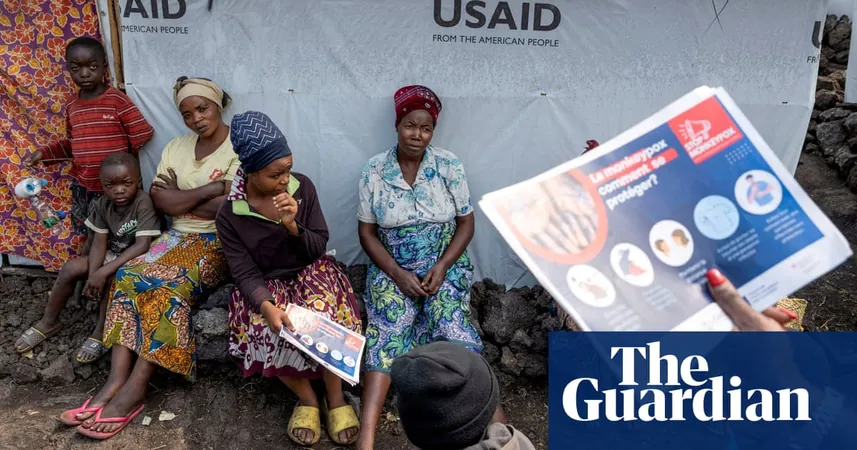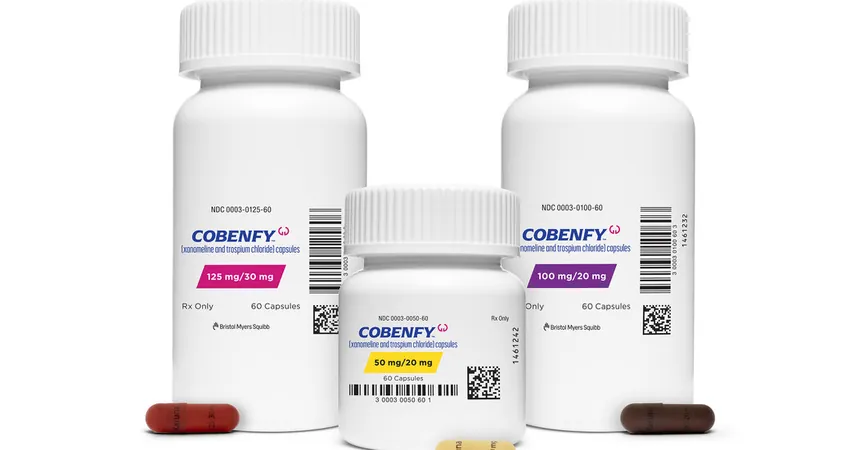
Battling Misinformation as Mpox Vaccination Efforts Kick Off in DRC
2024-09-26
In the Democratic Republic of the Congo (DRC), healthcare workers are gearing up for a vital initiative: the rollout of mpox vaccines. However, their fight against the virus is compounded by a serious adversary—widespread misinformation. As health authorities prepare to distribute the first of millions of promised doses, ensuring vaccine acceptance among the population is crucial.
Numerous conspiracy theories have emerged, with some suggesting that the virus was manufactured by Western powers to sterilize the Congolese or merely profit pharmaceutical companies. These narratives often stem from a deep-seated mistrust in medical institutions, a legacy of historical injustices linked to colonialism. Dr. Junior Mudji, a leading researcher at Vanga Hospital, emphasized that misinformation spreads far more rapidly than factual information.
This year's mpox outbreak has seen around 26,000 cases reported in the DRC, prompting officials to combat myths and educate communities on prevention and treatment options. The initial vaccination campaign will focus on frontline health workers and high-risk groups, but broad community education on hygiene practices, such as regular hand-washing, is essential for overall public health.
A recent UNICEF poll revealed alarming statistics: only 56% of nearly 200,000 respondents had heard of mpox, highlighting a concerning lack of knowledge about its symptoms and modes of transmission. The vast and remote nature of the DRC, coupled with low mobile phone ownership—less than half the population—complicates the dissemination of accurate information.
Dr. Mudji noted that many communities, displaced by ongoing conflicts, have developed a pronounced distrust of governmental authorities. During a recent call-in session about mpox, he observed that individuals are quite misinformed, leading them to believe that the disease is an import from Western countries. Historically, mpox has not been prevalent in the DRC, but the current outbreak of a new variant has brought public health awareness to the forefront.
Stigmas associated with mpox persist, as Mudji explained how communities often label affected families as “punished” for their actions, propagating further misinformation. The epidemic climate in cities like Goma reinforces these fears, with residents expressing beliefs that foreign powers are intentionally creating health crises in the region. Irankunda Alice, a local seamstress, stated, "Why are epidemics like Ebola and mpox regular in our country, but not elsewhere? I think the West wants to weaken us."
Gershom Risasi, a teacher in Goma, echoed these sentiments, pointing to perceived profit motives of foreign pharmaceutical companies during health crises. Dr. Rodriguez Kisando, a physician, remarked on the historical pattern of misinformation flourishing during outbreaks when access to reliable information is precarious.
To counteract misinformation, UNICEF is collaborating with the DRC government, utilizing “community action cells” made up of local leaders, health workers, and educators, who disseminate accurate information through community engagement. As Sophie Chavanel, a UNICEF communications expert, stated, the emphasis is on building trust within communities. Real conversations—face-to-face interactions in homes and marketplaces—are paramount for fostering understanding and acceptance.
Encouragingly, despite the challenges posed by misinformation, a significant portion of the population appears willing to receive the vaccine. The UNICEF poll indicated that 75% of respondents would accept a vaccine if offered, suggesting a path forward, driven by dialogue and the provision of reliable information.
In conclusion, while misinformation poses a formidable challenge in the wake of the mpox outbreak in the DRC, community-driven efforts to educate and instill trust could pave the way for successful vaccination campaigns and improved health outcomes. As health authorities undertake this urgent initiative, the importance of open communication and transparency cannot be overstated.



 Brasil (PT)
Brasil (PT)
 Canada (EN)
Canada (EN)
 Chile (ES)
Chile (ES)
 España (ES)
España (ES)
 France (FR)
France (FR)
 Hong Kong (EN)
Hong Kong (EN)
 Italia (IT)
Italia (IT)
 日本 (JA)
日本 (JA)
 Magyarország (HU)
Magyarország (HU)
 Norge (NO)
Norge (NO)
 Polska (PL)
Polska (PL)
 Schweiz (DE)
Schweiz (DE)
 Singapore (EN)
Singapore (EN)
 Sverige (SV)
Sverige (SV)
 Suomi (FI)
Suomi (FI)
 Türkiye (TR)
Türkiye (TR)